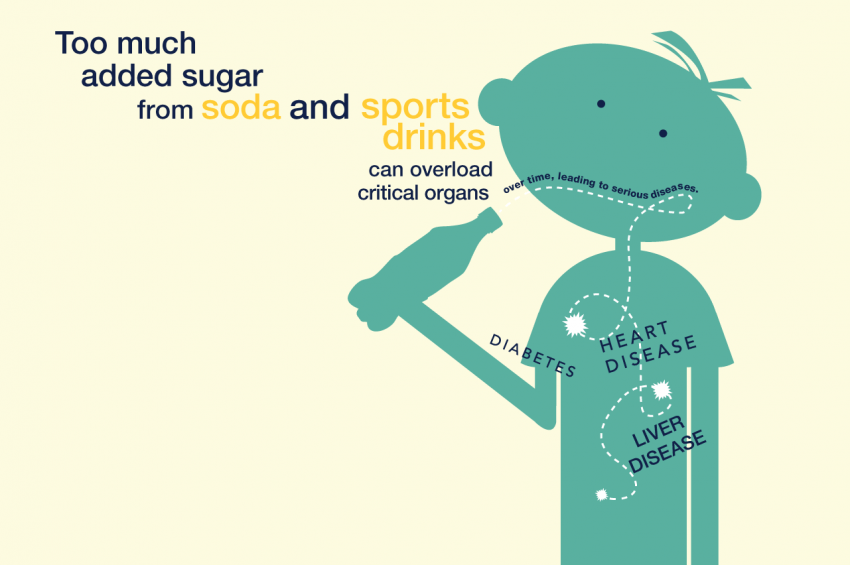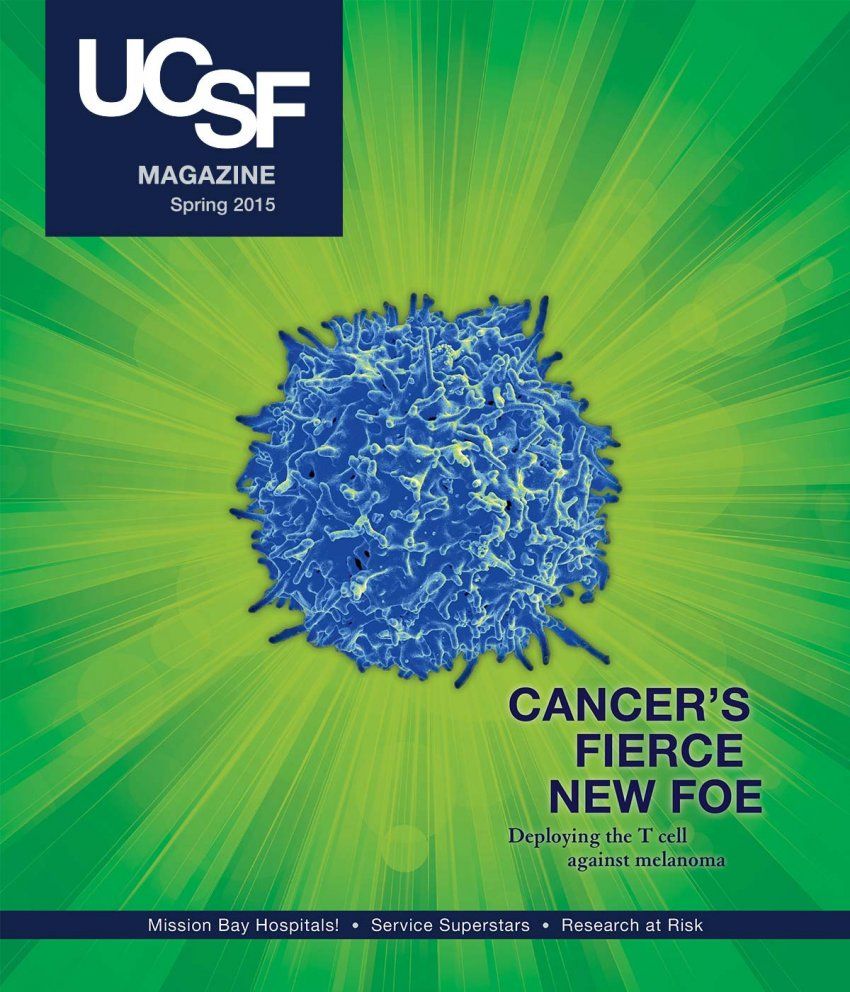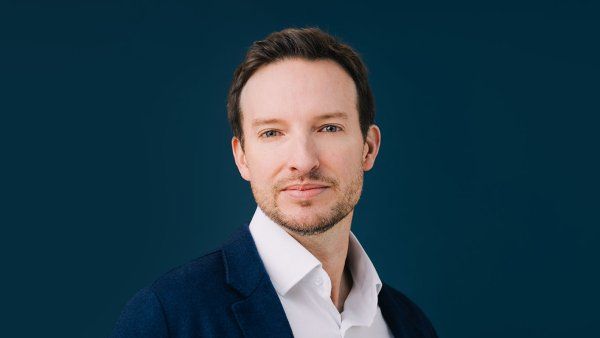
Your Body on Sugar
How too much sugar can make you sick.

In the wake of the soda tax controversy that consumed the Bay Area during the 2014 election, UCSF launched SugarScience.org, an interactive website showcasing up-to-date scientific data about sugar and its health effects. Kirsten Bibbins-Domingo, PhD ’94, MD ’99, and resident alumna, holds the Lee Goldman, MD, Endowed Chair in Medicine and is one of the scientists behind SugarScience. Also director of the UCSF Center for Vulnerable Populations, she is dedicated to helping her patients make better dietary choices for themselves, their families, and their communities. Here, she discusses how too much sugar can make you sick.
How did the website come about?
All of us involved in SugarScience have a history of working on sugar’s health impacts. But heightened concerns about obesity and diabetes, as well as ballot measures in New York City and the Bay Area, made it clear we needed a good public resource to disseminate the wealth of scientific evidence we have about sugar.
What does science say about sugar’s effects on our health?
What’s striking is the rising tide of diabetes in the U.S., particularly in poor populations. It used to be a disease of middle age, but now we’re seeing type 2 diabetes in adolescents. A decade ago, one in 11 teenagers had pre-diabetes. Now we see it in one in four, and in poor and minority communities, it’s closer to one in two. The evidence is clear and compelling that added sugar is a major contributor to that trend.
How does sugar cause heart disease, hypertension, and other illnesses?
Diabetes is our strongest risk factor for heart disease. But in people who consume excess sugar – even in the absence of diabetes, obesity, or weight gain – their blood pressure goes up. The kidneys control blood pressure, and byproducts from processing all these sugars trick the kidneys into raising blood pressure, which can lead to heart disease and stroke.
What’s the easiest way to cut back?
Cut out sodas! They account for almost half the added sugar in our diets and have no nutritional value whatsoever. But even more important, Americans don’t eat enough fruits and vegetables. It’s clear that diets high in fresh fruits and vegetables and whole grains are healthier, but when you’re eating lots of added sugar, you’re not eating enough of the other things. The point is to have balance: limit your daily sugar intake to 25 grams (5 teaspoons) for women and 38 grams (7.6 teaspoons) for men and pay attention to added sugar in foods like cereals and yogurt.
How can parents help their kids consume less sugar?
I have a teenage son, so I know it’s hard. But our patterns of consuming food start very young. Do you always have a sweet beverage or dessert with your meal, or are sugary things limited to special occasions? Kids are exposed to lots of images that make sugar attractive, but what happens at home can reinforce healthy or unhealthy choices.
Why are low-income populations so vulnerable?
If your resources are limited, your diet centers on things that cost less. Over the last several decades, the price of sugary things has gone up less than the price of fruits and vegetables – so healthier choices are more expensive. And many neighborhoods don’t have healthy grocery options, so it’s hard for my patients to make healthy choices even if they want to. We hope the website will not just influence individual choices but also inspire communities and policymakers to think collectively and find solutions for all our citizens, especially the most vulnerable.



